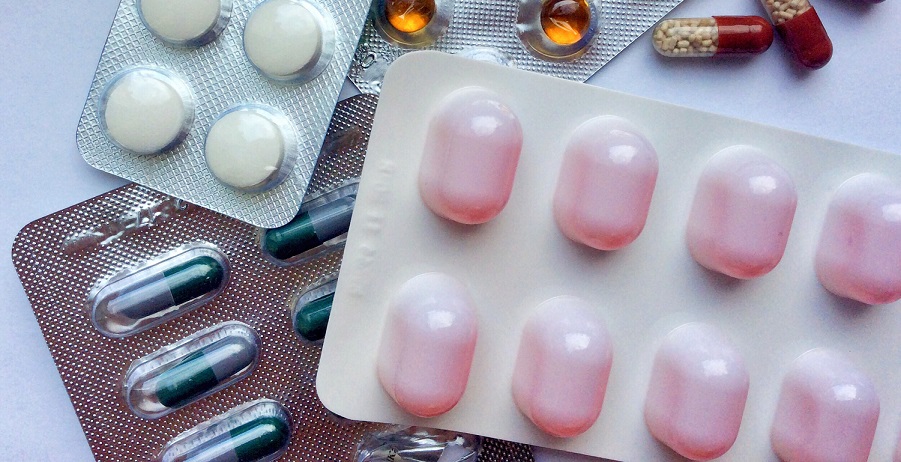With 17% of the world’s population, Africa (55 countries, 1.3 billion people) bears a disproportionate burden of disease: it accounts for a quarter of the world’s disease burden, 60% of people living with HIV/AIDS, and more than 90% of the world’s annual malaria cases, but only 6% of the world’s health care spending and less than 1% of the world’s pharmaceutical market.
The continent produces only 3% of the medicines consumed by its people. Pharmaceutical supply chains have multiple intermediaries, contributing to the fact that drugs sold in sub-Saharan Africa are often the most expensive in the world. In addition, Africa has the highest prevalence of substandard and falsified medicines (20%), which patients suffer from, especially since they often turn to the parallel market.
These challenges have been largely attributed to weak or absent drug regulatory systems with unclear policies and incomplete or inconsistent legal and regulatory frameworks. Acting at this level is therefore critically important. It is also essential to stimulate the local production of pharmaceuticals within the continent. The African pharmaceutical sector is expected to grow from $19 billion in 2012 to $66 billion by 2022, with Africa expected to be the fastest growing market in the world for pharmaceuticals. It is estimated that the health and wellness sector in Africa will be worth about $259 billion by 2030, with the potential to create over 16 million jobs.
A recent analysis shows that the cost of most drugs produced in Ethiopia and Nigeria is typically 5-15% lower than the price of imported products. A very valuable institutional pillar to address these issues is the recently ratified African Continental Free Trade Area (AfCFTA), which will foster the creation of a true African drug market and allow for the achievement of scale economies for continental production to meet Africa’s needs.
The Covid-19 pandemic has substantially intensified the urgent need for the African Union and its member states to invest in effective and efficient regulation of medicines, medical products and technologies. It has highlighted the requirement to strengthen health policy diplomacy, leadership and coordination within the AU members to increase the resilience of health systems and better prepare for future crises. Enhancing our joint crisis management capacity is crucial to prepare the continent for serious cross-border health threats.
Building on the lessons learned from the current crisis, the ratification, setting up and rapid operationalization of the African Medicines Agency will strengthen preparedness and response capacity to current and future health crises. In overall terms, the African Medicines Agency will facilitate a coordinated African Union-wide response to health crises; monitor and mitigate the risk of shortages of critical medicines and medical supplies; and provide scientific advice on medicines that can prevent, diagnose, or treat the diseases that cause these crises. It will also push for the coordination of clinical trials, including vaccines. More specifically, leveraging the African Continental Free Trade Area, the AMA will help build Africa’s R&D capacity, harmonize regulations in drug registration, help countries comply with best practices and international standards, strengthen the fight against substandard and counterfeit medicines and medical products, while fostering the building of an enabling environment for continental production of medicines and vaccines.
Références
African Union. Press Release Feb. 2020 : African Medicine Agency (AMA) Treaty. https://au.int/en/pressreleases/20200205/african-medicine-agency-ama-treaty
African Union (2019) Treaty for the establishment of the African Medicines Agency. https://au.int/en/treaties/treaty-establishment-african-medicines-agency
African Union. African Union Member States. https://au.int/en/member_states/countryprofiles2
Conway M., Holt T., Sabow A., and Yuan Sun I. (2019) Should sub-Saharan Africa make its own drugs? McKinsey & Company Insights. https://www.mckinsey.com/industries/public-and-social-sector/our-insights/should-sub-saharan-africa-make-its-own-drugs#
Holt T., Lahrichi M., Santos da Silva J. (2015) Africa: A continent of opportunity for pharma and patients. McKinsey & Company Insights. https://www.mckinsey.com/industries/pharmaceuticals-and-medical-products/our-insights/africa-a-continent-of-opportunity-for-pharma-and-patients
Ncube B.M., Dube A. and Ward K. (2021) Establishment of the African Medicines Agency: progress, challenges and regulatory readiness. Journal of Pharmaceutical Policy and Practice 14, 29. https://doi.org/10.1186/s40545-020-00281-9
WHO (2020) The African Regional Health Report: The health of the people. Bulletin of the World Health Organization. https://www.who.int/bulletin/africanhealth/en/
WHO (2008) African Medicines Regulatory Harmonization Initiative (AMRHI) : a WHO concept paper. WHO Drug Information Vol 22, No. 3, https://apps.who.int/iris/handle/10665/74289
